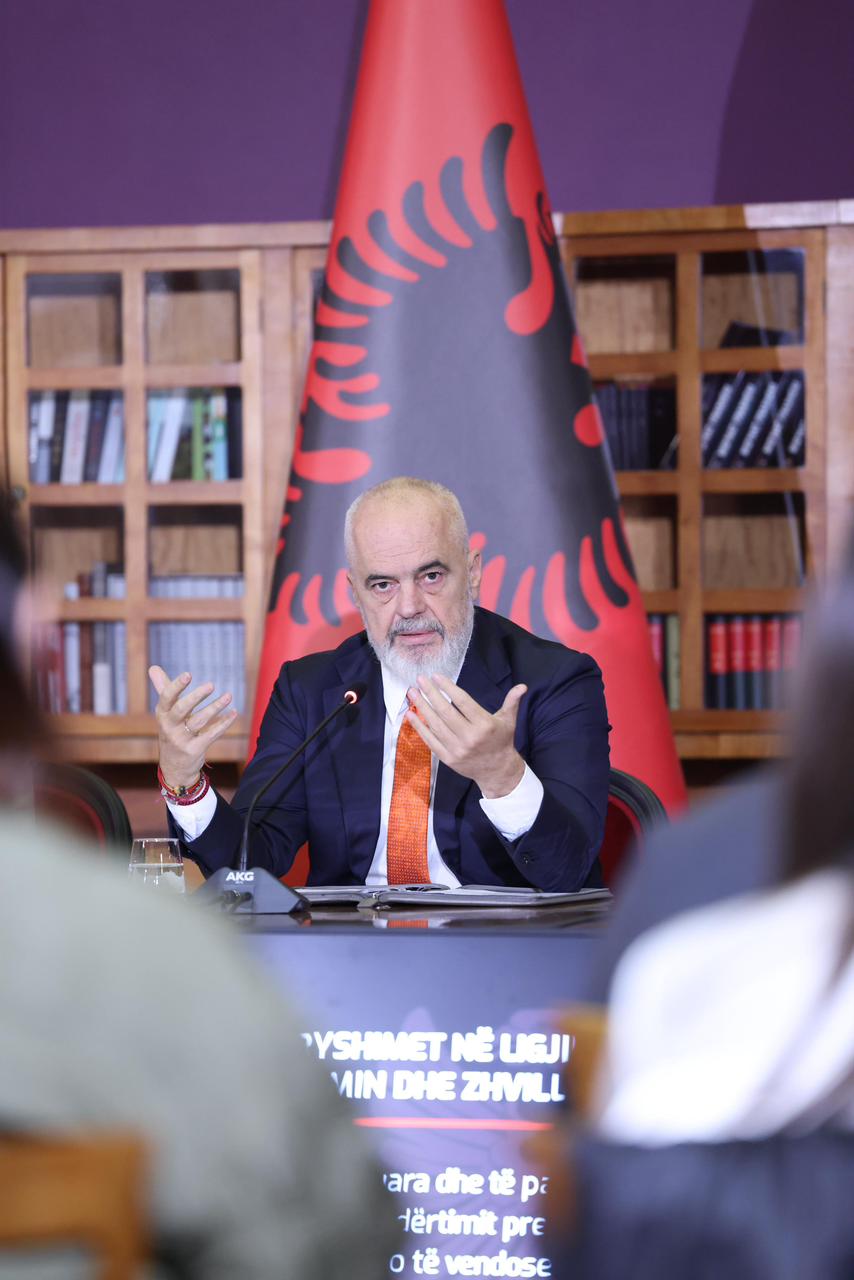Prime Minister Rama Declares End to Illegal Occupations with National Registration and Inventory of Public Spaces
A key part of the government’s legal package concerns the protection of public spaces, which are often subject to abuse, illegal occupation, and unauthorized transformation. According to Prime Minister Edi Rama, the purpose of this reform is to clearly define the difference between public and private spaces and return to the community what legally belongs to it.
He announced that a mandatory registration and inventory process will begin for all public spaces, including courtyards around apartment buildings and shared areas in residential blocks. This process will provide a clear map of public property for the first time, preventing abuses and false claims of ownership.
“No private individual can build fences, put up barbed wire, or close off community spaces and turn them into businesses. This practice will end,” Rama emphasized. He noted that, until now, many of these spaces have been treated as private property and occupied without legal right.
Another important element of the package is limiting court interventions. The prime minister made it clear that courts will no longer be able to issue protective measures in favor of trespassers. This closes the door on past practices that often delayed legal processes and blocked the enforcement of decisions.
Beyond the legal aspect, municipalities will play a direct role in managing and maintaining public spaces. They are legally obligated to do so.
One innovation is the creation of a “green fund,” which will be financed by builders. Any entity that obtains a construction permit must contribute to the planting of trees proportional to the built area. This initiative aims to strike a balance between new constructions and the environment, strengthening the connection between urban development and nature protection.
Additionally, new construction permits for residential buildings will include a requirement to plan spaces dedicated to children. This new rule aims to improve quality of life in communities by providing children with safe play and social development areas.
“This is a significant advancement in ensuring the social function of property and returning public spaces to the people. There will be no more compromises with those who have treated these spaces as private property,” stated Rama.



